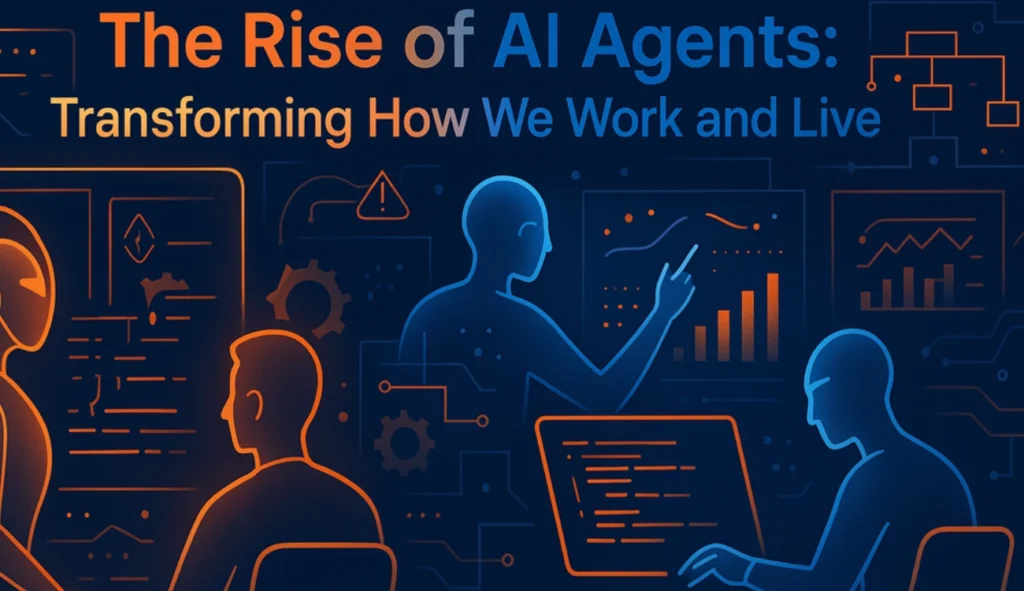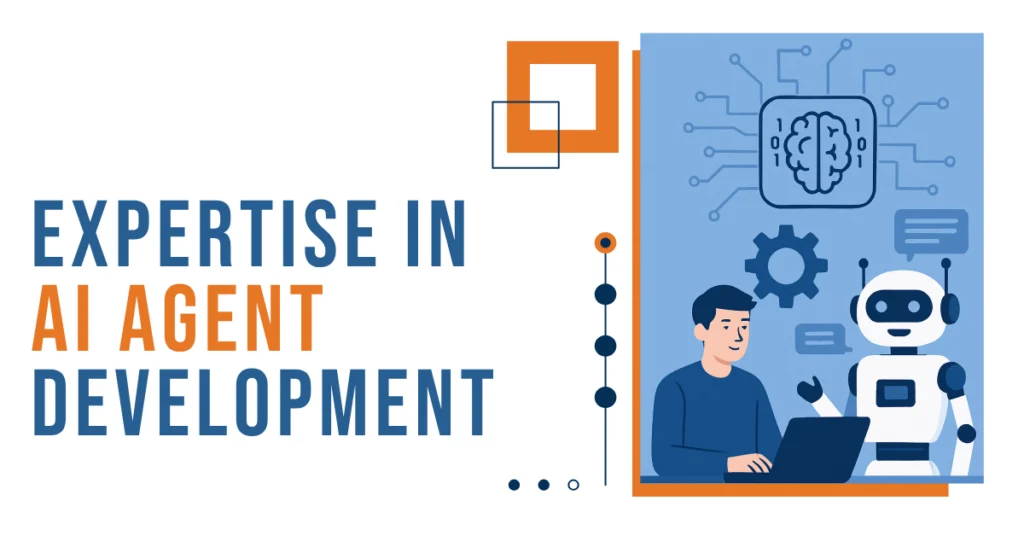
Imagine a Roomba that only told you your floors were dirty but didn’t clean them. Helpful? Debatable. Annoying? Very much so. This analogy perfectly captures the early limitations of generative AI systems like ChatGPT when they first arrived on the scene. While they could describe solutions to problems and discuss theories endlessly, they often feel short when it comes to taking concrete actions to solve those problems.
The Evolution of AI: From Information to Action
When ChatGPT first emerged, it could describe how to solve math problems and discuss theory in detail, but it struggled with reliably handling even simple arithmetic questions. The breakthrough came when developers connected these AI systems with external applications—like online calculators—which significantly improved their capabilities. This simple yet powerful discovery marked the beginning of an important evolution in generative AI.
This evolution has led to what we now call AI agents: systems where large language models (LLMs) power intelligent entities that can pursue complex goals with limited direct supervision. In these systems, the LLM serves as the brain while additional algorithms and tools are layered on top to accomplish key tasks ranging from generating software development plans to booking plane tickets.
What Exactly Are AI Agents?
Agentic AI refers to artificial intelligence capable of making decisions, planning, and adapting to new information in real time. According to experts like Lilian Weng from OpenAI, an AI agent features three key characteristics:
- Planning: An AI agent can create step-by-step plans with discrete milestone goals from a prompt while learning from mistakes via a reward system to improve future outputs.
- Memory: AI agents combine short-term memory to process chat-based prompts with longer-term data retention and recall (often via retrieval augmented generation, or RAG).
- Tool use: Agents can query APIs to request additional information or execute actions based on an end user’s request.
Types of AI Agents
AI agents come in various forms, each with distinct capabilities and applications:
- Reflex agents use a model of the world to make decisions. They can remember past states and make decisions based on both current and past experiences. Examples include linting tools like ESLint or Pylint that apply predefined rules to evaluate code.
- Goal-based agents achieve specific goals using their knowledge and the stated goal (or prompt) to make decisions. Advanced IDEs with AI-powered code completion such as GitHub Copilot fall into this category.
- Utility-based agents aim to achieve goals in the best way possible by evaluating different approaches. Tools that prioritize and assign bugs based on severity, impact, and developer workloads exemplify this type.
- Learning agents improve performance over time by learning from experience. They consist of a learning element that makes improvements based on user feedback and a performance element that uses the learned knowledge. Code completion tools like GitHub Copilot that improve over time represent this category.
The Promise and Potential
At their best, AI agents hold the promise of pursuing complex goals with minimal direct oversight. This means removing toil and mundane linear tasks while allowing humans to focus on higher-level thinking. When AI agents connect with other AI agents to form multi-agent systems, like GitHub Copilot Workspace, the realm of possibility grows exponentially.
Proof-of-concepts like AutoGPT offer compelling examples, such as marketing agents that autonomously search for Reddit comments with questions about specific products and then answer them. These demonstrations highlight how AI agents can operate with increasing levels of independence to accomplish meaningful tasks.
Technical Challenges in AI Agent Development
Despite their promise, AI agents face significant technical challenges:
- Unpredictable behavior: We cannot deterministically predict what an AI model will say or do next, making it difficult to explain how their inputs work (the combination of prompts and training data they use to generate responses).
- Limited explainability: Current models cannot fully explain their outputs, though work is being done to offer greater transparency by enabling them to explain how they arrived at solutions.
- Debugging difficulties: AI agents are challenging themselves to debug because they often solve problems in unexpected ways. The more sophisticated an agent becomes and the longer it runs, the more difficult debugging becomes, especially considering how quickly logs can grow.
- Evaluation challenges: It’s difficult to evaluate AI agents in a repeatable way that demonstrates progress without employing artificial constraints. This is particularly challenging as the core capabilities of the underlying LLMs continue to rapidly improve.
The Importance of Prompt Engineering
Since the beginning, generative AI models have been able to retain context for follow-up questions. Developers quickly recognized this potential and began prompt chaining, building prompts that feed the output of one prompt into the next.
This makes getting the prompt right critically important. The best prompts are clear and precise about their intent. For example, asking an AI to “write a calculator application” expresses clarity about what you want but lacks precision about how to get there. Should it be for iOS, Android, or Windows?
Prompt engineering involves investing in backend systems that help an underlying LLM glean as much context as possible about a given prompt. This might include information about neighboring tabs in your IDE or the programming language you’re using. These improvements enhance the ability of generative AI models and AI agents to derive clarity and precision from prompts.
Real-World Applications and Future Directions
As AI agents continue to evolve, they’re finding applications across numerous industries and use cases. From automating complex workflows to enhancing decision-making processes, these intelligent systems are transforming how businesses operate and how individuals interact with technology.
The future of AI agents will likely involve even greater autonomy, improved reasoning capabilities, and more seamless integration with the tools and systems we use daily. As technology matures, we can expect AI agents to become increasingly sophisticated in their ability to understand context, make decisions, and take actions on our behalf.
Expertise in AI Agent Development

At ideyaLabs, we have extensive experience in AI agent development. Our team has been at the forefront of creating intelligent solutions that help businesses automate complex tasks and enhance decision-making processes. We understand the challenges and opportunities that AI agents present and are committed to developing solutions that drive real business value. Visit https://ideyalabs.com/ai-agent-development to learn more about our services.